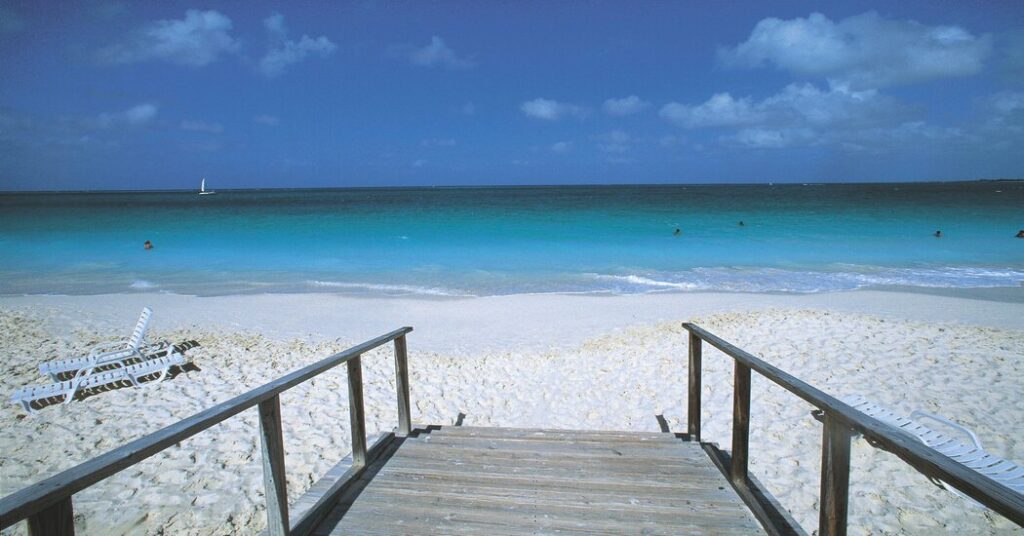A Canadian tourist trying to photograph a shark in shallow water at a beach in the Turks and Caicos Islands this month was bitten by the shark and lost both of her hands, officials said.
The 55-year-old tourist was treated at a hospital before she left the island, Providenciales, a sandy, 38-square-mile magnet for snorkelers and sun seekers that is ringed by turquoise waters.
The shark was about six feet long, according to the Turks and Caicos government, but its species was unclear.
The tourist had “attempted to engage with the animal” in an effort to take pictures of it before she was bitten on Feb. 7, the Department of Environment and Coastal Resources in Turks and Caicos said in a statement.
The woman, who had been snorkeling when she was bitten, was later transported to Canada to receive additional treatment, said Laura Dowrich, a spokeswoman for Experience Turks and Caicos, a tourism board for the islands.
The Royal Turks and Caicos Islands Police Force said it was investigating.
Global Affairs Canada, the country’s foreign affairs department, said it was aware of the episode and was contacting the local authorities for more information and to offer its assistance.
The tourist’s identity was not immediately released.
The beach was closed but reopened on Feb. 9 after the shark was found to have moved into deeper water, according to the Department of Environment and Coastal Resources. Turks and Caicos, an archipelago, is a British territory and one of the Caribbean’s fanciest tourist destinations. It is also home to one of the largest barrier reefs in the world.
Shark bites are extremely rare and are typically accidents, experts say. But sharks can cause severe wounds when they mistake humans for prey.
Across the world, there were 88 confirmed or potential shark bites logged last year by the International Shark Attack File at the University of Florida, an organization that tracks shark data.
Twenty-four were provoked, meaning that a human had initiated contact with the shark, according to the organization. Four people died from shark bites. One of last year’s recorded bites was in Turks and Caicos; it was not fatal.
The file’s director, Gavin Naylor, said on Saturday that it was too soon to say if this month’s bite in Turks and Caicos was provoked or unprovoked.
But Chris Stefanou, a New York fisherman and conservationist who tags sharks, said that photographing sharks can carry risks, and that the shark might have confused a phone for a fish.
“Sharks, or any predatory animal in the ocean, can confuse that as like a bait fish,” Mr. Stefanou said, referring to small, shiny fish that draw sharks to shore. “The shark didn’t just see a human: ‘Ooh, I’m hungry, I want to go take a bite.’ That did not happen.”
The episode was not the only reported shark bite in the Caribbean on Feb. 7. In the evening, two Americans were injured in what appeared to be a shark encounter in Bimini Bay in the northern Bahamas, according to the Royal Bahamas Police Force.
Mr. Naylor said two bites in one day in the region was unusual and made him “sit up a little.”
But it was not clear whether there was any trend. The number of confirmed unprovoked shark bites dropped to 47 last year, down from 69 the year before, according to the International Shark Attack File.


